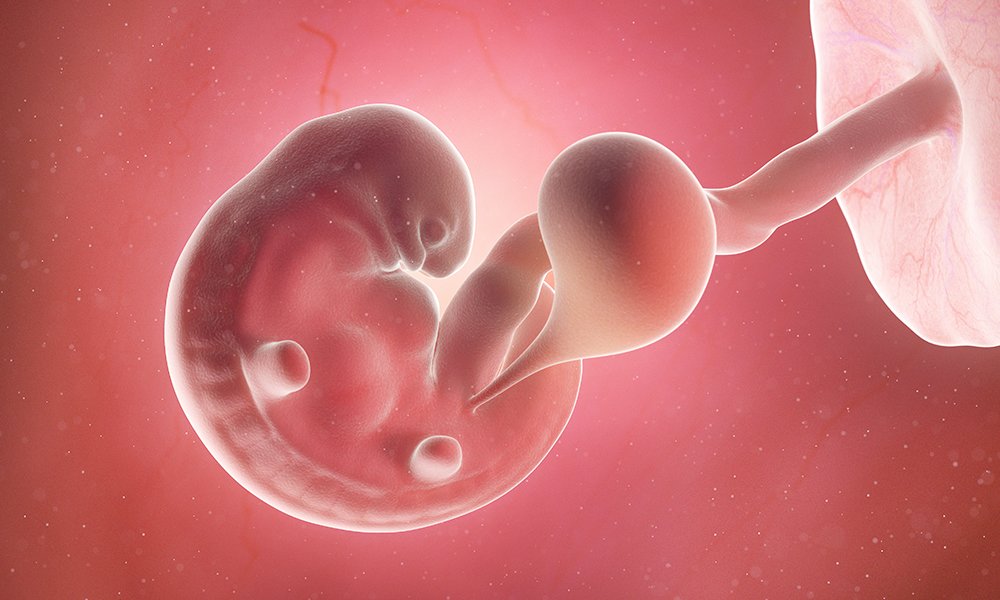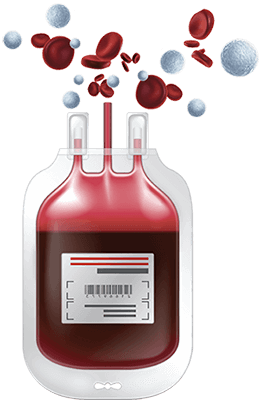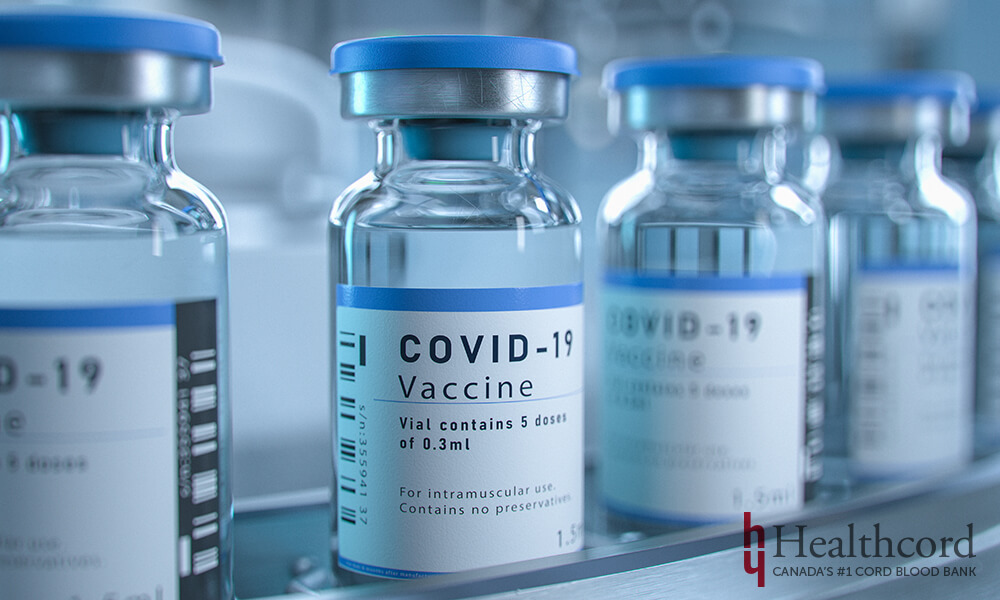Canada's Largest & Oldest Cord Blood Bank
You are already in your second month of pregnancy! Have you had enough time to process this exciting news?
This Week’s Highlights
Your baby is just a tiny ball of cells
The zygote starts its journey down to the uterus
Amniotic fluid starts building up in your uterus
Your Baby at 6 Weeks
Your baby is the size of a lentil or a pea, measuring about 0.25 inches (0.64 centimetres) from head to rump. He or she has grown from being a ball of cells to a C-shape, which is often referred to as the ‘fetal position’.

Baby Development at Week 6
This week, the head is starting to take shape with dark spots marking where the eyes, ears and the nostrils will be. Bumps are developing in the places where the jaw, cheeks and the chin will form.
Also taking form this week are the buds that will become your baby’s arms. Bones and muscles are also starting to develop, along with a thin layer of skin. Your baby’s skin is so thin at this stage that you can see through it.
The circulatory system continues to grow, along with the kidneys, liver and lungs.
The most important change this week perhaps is what happens with the neutral tube, which starts closing. The neural tube forms your baby’s spinal cord and brain.

Pregancy Tip
Try to satisfy your food cravings with healthy snacks. Get rid of those chips and cookies and stock up on fruits, vegetables and nuts.

Invest in Your Baby’s Future by Preserving Newborn Stem Cells
Your Bump at 6 Weeks
Your bump won’t be making an appearance until around week 12. Again every pregnancy is different. Some moms start showing early (specially if it’s not their first pregnancy) and some moms don’t show until later on.
Weight gain is inevitable during your pregnancy. You should be gaining around 1 to 5 pounds (0.45 to 2.3 kilograms) in your 1st trimester, which ends at week 13.
How Your Body is Changing
As human chorionic gonadotropin (HCG) hormone levels continue to rise, fluctuations in hormone levels may lead to nausea and morning sickness. Approximately 85% moms-to-be experience morning sickness in their first trimester, which may lead to weight loss. If you are having a challenging time keeping your food down, you can try eating smaller portions more frequently.
With all the drastic changes happening inside you, it is normal to start feeling tired and even a bit low during this time. Make sure you are getting plenty of rest. Have you significant other take on more responsibilities at home, to give you time to rest. Frequent snacks, sour foods, and light exercise may help your exhaustion.
It’s very likely the need to visit the bathroom is now interrupting your sleep. Pregnancy increases the risk of UTIs (urinary tract infections), so watch out for signs of pain or burning during urination.
How Far Along are You?
6 weeks in, 34 weeks to go! You are still in the first trimester of your pregnancy. Even though pregnancy is measured in weeks this means you are in your second month of pregnancy.
Diet at Week 6
Morning sickness often kicks off anytime between 4 to 6 weeks. Symptoms vary from mom-to-mom, and can be as mild as just feeling queasy, to constant vomiting.

If you are having difficulty keeping your food down, feel free to try some of the following tips.
- Avoid greasy, spicy or fatty foods. Dry and bland is key at this point.
- Drink lots of water and stay hydrated.
- Snack frequently, so your stomach is not empty for too long.
- Eat smaller meals.
- Keep a food diary, so you can avoid foods that trigger nausea
- Ginger and lemon can help
Also remember, folic acid in your diet it important in the first 12 weeks of pregnancy.

Viruses, Immunity & Stem Cells
Did you know that viruses, immunity and stem cells are all related?
The COVID-19 pandemic has changed the way we see pathogenic infections and their consequences. Keeping with this trend, we wanted to explore the link between infections, immunity, and stem cells in this blog post: https://www.healthcord.com/viruses-immunity-and-stem-cells/
Exercise at Week 6
Constant nausea can make it difficult to keep up with your fitness routine. But, staying active has many benefits during pregnancy, including lower risk of gestational diabetes, easier labour and reduced back pain.
Exercise releases endorphins, which can help with your tiredness and promoter better sleep. Schedule your workout and stick to it!
Pregnancy Symptoms at Week 6
Pregnancy symptoms can hit you full on starting around week 6. Here’s what you can expect this week.
Breasts changes – Your breasts will become larger, swollen and tender to touch. Hormonal changes and an increase in blood supply are responsible for these changes.
Frequent visits to the bathroom – If you haven’t noticed it yet, you will notice now that you need to visit the bathroom more frequently. Your kidneys are working extra hard to keep up with the increase in your blood supply. Make sure you drink plenty of water to stay hydrated.
Extreme tiredness – Exhaustion is one of the most common symptoms associated with this stage of pregnancy. Remember, your body is going through massive changes at this stage to make sure that tiny ball of cells will survive and continue to grow into your precious baby.
Bloating and gas – The pregnancy hormone progesterone causes smooth muscles in your body to relax, which includes the muscles of the digestive track. As a result, digestion slows down giving your body more time to absorb nutrients, so it can be passed on to the baby. Bloating is one unfortunate side effect caused by this slow down.
Cramping – As your uterus expands to make space for the baby, you may experience cramping.
Have Questions about Cord Blood Banking?



